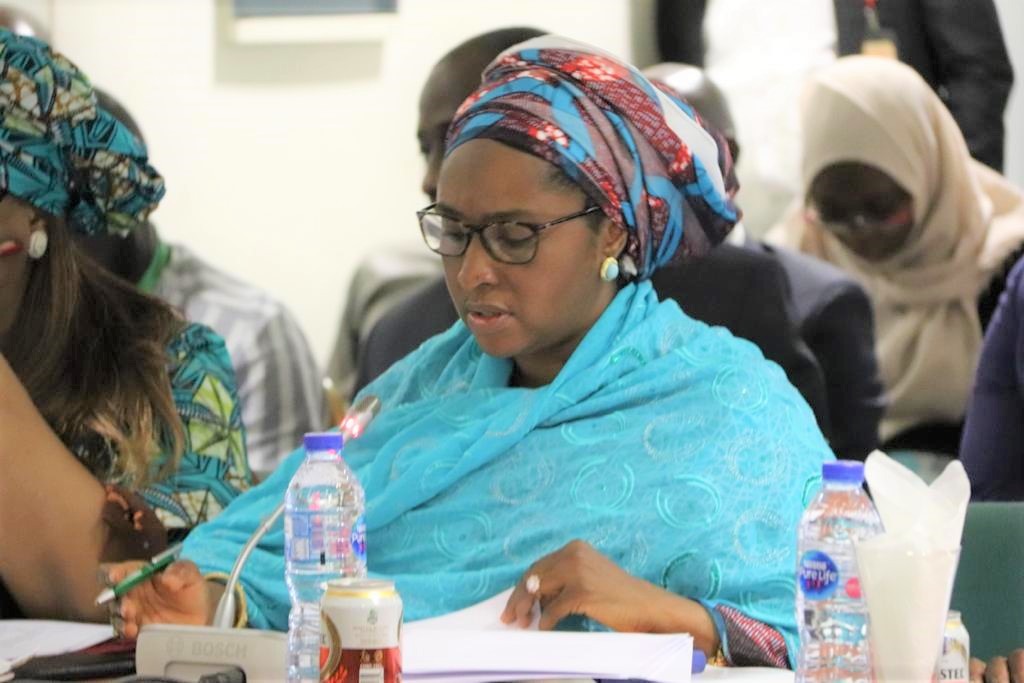One of the trending issues generating fears now in Nigeria is whether China can take possession of the projects financed by them if Nigeria defaults in the servicing of the loan.
In order to douse the fear, the Debt Management Office (DMO) has pointed out that Nigeria explicitly provides for debt service on its external and domestic debt in its annual budgets. This means that debt service is recognised and payment is planned for. In addition, a number of the projects being (and to be) financed by the loans are either revenue generating or have the potential to generate revenue. Therefore, there should be no worries.
Of course, China’s increased lending to Nigeria has the potential to support the economic growth of the country, though it could also amplify credit risks for the country with deteriorating external positions, which Nigeria is not facing at the moment. What should rather be a concern is fiscal discipline in the management of the loan to avoid what could exacerbate fiscal and external pressures.
This is worth stating because some finance experts have said that unless Nigerian investment financed by Chinese loans generates substantial economic gains that could boost debt servicing capacity, the credit implications of such lending include higher debt burdens, weaker debt affordability and weaker external positions.
On one hand, fiscal discipline is essential to improve and sustain economic performance, maintain macroeconomic stability, and reduce vulnerabilities. Discipline on the other hand is especially important if Nigeria is to successfully meet the challenges and reap the benefits of economic and financial growth.
Having stated all this, considering the way and manner President Muhammadu Buhari has been pushing for fiscal discipline through anti-corruption fight in the country, the issue of fiscal discipline cannot be overemphasised. Unarguably, a lot has been done particularly in the government corridors, specifically within ministries department and agencies (MDAs) to ensure fiscal discipline; the loopholes through which monies were hitherto syphoned are plugged, assuring that the loans are properly channeled into earmarked projects across the country.
Nigeria has been securing loans from multilateral and bilateral lending institutions such as International Monetary Fund (IMF), World Bank, Paris Club and, of course lately, China. Nigerians ought to understand that Chinese loans, especially tied to infrastructure, have become more attractive to Nigeria due to their low interest rates, flexibility and availability. Therefore, there should be no worries. All that is needed is transparency and accountability in managing the loans and by extension, ensuring the sustainability of the infrastructures that built from the loan proceeds.
A further increase in China’s lending to Nigeria – or even maintaining the current pace of lending – should rather go a long way to addressing the country’s financing gap. However, it is only when there is a lack of transparency over the conditions attached to Chinese lending and a lack of reform and governance requirements, compared with those required by multilateral official creditors, that there might be limitation of the long-term benefits.
Recall that as at 31 March, 2020, DMO put Nigeria’s total indebtedness to China at $3.121 billion, representing only about 3.94 percent of Nigeria’s total public debt. Similarly, when considered in a pool of all external sources of funds, loans from China accounted for just 11.28 percent of the external debt stock. This represents a clear indication that while Chinese loans have lately been very attractive, China is not yet a major lender to the Nigeria.
Data from the DMO showed that in 10 years (2010 – 2020) Nigeria secured about 11 loan facilities from China state-owned EXIM Bank. It is important to note that most of these loans are tied to projects and in many cases the projects are the collateral.
The afore-mentioned loans are concessionary loans, with interest rates of 2.5 percent per annum, tenor of 20 years, and a moratorium of seven years. The terms and other details of the loans are available at the DMO website.
The terms are compliant with the provisions of section 41 (1a) of the Fiscal Responsibility Act, 2007. In addition, the low interest rate reduces the interest cost of government, while the long tenor enables the repayment of the principal sum of the loans over many years. These two benefits make the provisions for debt service in the annual budget lower than they would ordinarily have been if the loans were on commercial terms.
Some of the finished and on-going Chinese funded projects are: the popular Abuja-Kaduna standard gauge rail line, Abuja light rail system, Four Nigerian airport terminal expansion (Abuja, Port-Harcourt, Kano and Lagos), National Public Security Communication System, Zungeru Hydroelectric Dam, Lagos-Ibadan standard gauge rail line, Upgrading of Abuja-Keffi-Makurdi road, ICT Infrastructure Backbone, Abuja water supply project, among others.
There is no overstating the fact that Nigeria is in dire need of infrastructure as highlighted by a recent Mckinsey study on Nigeria’s infrastructure requirement gap which it said would require investments of well over $31 billion over a 10-year period to bridge. Given the huge amount required and the limited resources available to the government, China has decided to come to the rescue of Nigeria by assisting in developing infrastructure to ease the livelihood of Nigerians.
In the light of the country’s present position, it is laughable for some Nigerians to raise the brow believing that the country will agree to ceding its sovereignty for Chinese loans, even after the public clarifications by the Minister of Transportation, Rotimi Amaechi, on Clause 8(1) in the agreement earlier signed between the Federal Government and China EXIM Bank.
In a recent interview he granted the media, Amaechi reiterated that “waiving sovereignty” in that clause did not mean Nigeria is given up its sovereignty, but that it is only a contractual term; a sovereign guarantee that assures the payback. He went further to shed more light that “there is no contract without an agreement and that the agreement must contain some terms and one of the terms that this one contains is not that you are signing away the sovereignty of the country”.
Nigeria has not ceded its sovereignty to China. Legally looking at it, what the clause contains is that where the government defaults in repayment, they cannot claim sovereignty over Nigeria’s sovereign assets except those mentioned in the agreement.
This is a standard clause in international lending agreements between financial institutions and nations or between nations. Under public international law, a country’s assets (bank accounts, buildings, aircraft ships, etc.) in another country enjoys sovereign immunity from seizure or attachment to satisfy debts except where you can show that the particular asset is used for commercial transactions.
In the United States (US) and the United Kingdom (UK), for example, there are laws to protect foreign assets of other countries from seizure to satisfy judgement debts.
However, to safeguard lenders from loss as a result of default in repayment, such clauses are inserted in loan agreements between lenders (private or government) and borrowers (government). Some countries even insist that before granting a loan to a department or agency of a foreign government, there must be a sovereign guarantee (the nation’s Ministry of Finance and its Central Bank must give a guarantee for the repayment of the loan).
In fact, Nigeria has inserted sovereign immunity and sovereign guarantee clauses in lending agreements between her and some West African countries. Nigeria has also successfully pleaded sovereign immunity over Nigeria’s assets in banks in garnishee proceedings instituted in the US and the UK courts. Since the lender must safeguard its interest, apparently the country cannot take loans and refuse to repay. Therefore, there should be no worries.






